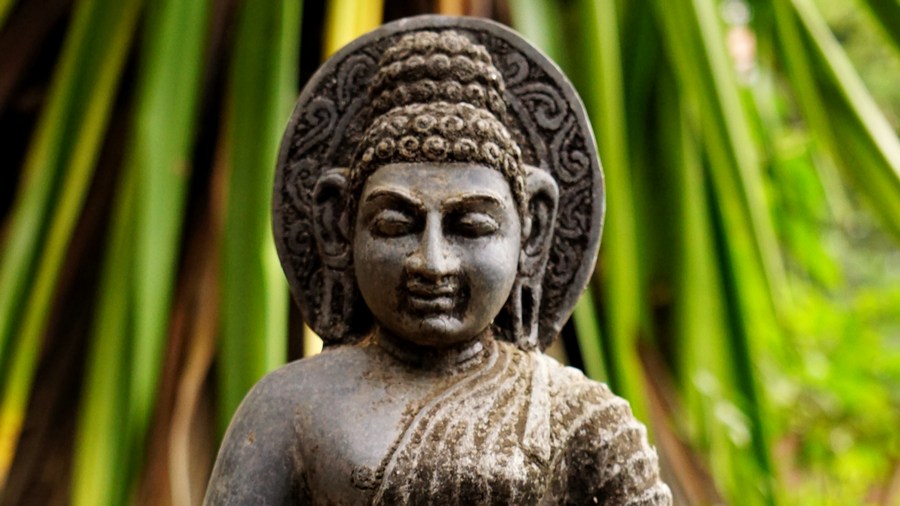[NOTE: This sutta shows a common situation where a god has learned a bit of Dhamma, but their understanding is incomplete or incorrect in some way. Out of compassion, the Buddha corrects their understanding.]
At Sāvatthī.
Then, late at night, a glorious deity, lighting up the entire Jeta’s Grove, went up to the Buddha, bowed, and stood to one side. Standing to one side, that deity recited this verse in the Buddha’s presence:
“Whatever you’ve shielded the mind from
can’t cause you suffering.
So you should shield the mind from everything,
then you’re freed from all suffering.”
The Buddha:
“You needn’t shield the mind from everything.
When the mind is under control,
you need only shield the mind
from where the bad things come.”
Read this translation of Saṁyutta Nikāya 1.24 Manonivāraṇasutta: Shielding the Mind by Bhikkhu Sujato on SuttaCentral.net. Or read a different translation on SuttaCentral.net or SuttaFriends.org. Or listen on PaliAudio.com or SC-Voice.net. Or explore the Pali on DigitalPaliReader.online.
Or read a translation in Deutsch, Italiano, Português, Русский, Srpski, বাংলা, Català, Español, Bahasa Indonesia, 日本語, မြန်မာဘာသာ, Norsk, සිංහල, ไทย, Tiếng Việt, or 汉语. Learn how to find your language.




